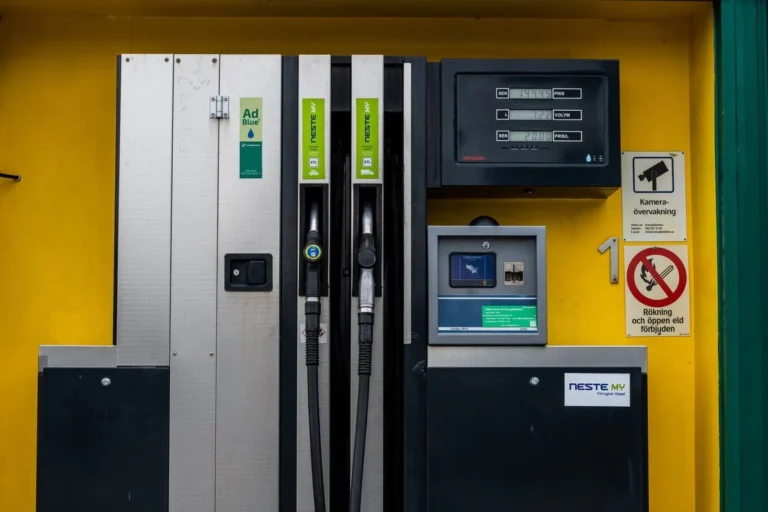The pharmaceutical supply chain management plays a significant role in terms of socio-economic and political perspective. Adequate information flow can secure competitive advantages for companies in this strictly regulated sector. As the COVID-19 pandemic showed, securing stable and undisrupted supply chains is crucial for the well-being of societies. Carrying cargo for pharmaceutical customers is an important part of Girteka’s business. So, what does managing pharmaceutical transport solutions entail?
Pharmaceutical sector – unlike any other
The pharmaceutical sector is a very specific field. Not only due to the strict regulations operating in each country, but also due to its supply chain management. According to a report from McKinsey & Company, pharmaceutical manufacturers are more resistant to various disruptions than any other sector as they generally hold higher inventory levels.
However, logistics services play a critical role in distributing pharmaceuticals – the sector itself is more global, delivering products and sourcing from a single region. McKinsey states that 40% of the pharma trade is carried out in a particular region, while other industries average at 50%. To become more resilient to any unexpected local situations that might disrupt pharma supply chains, companies are allocating their business and diversifying supply sources, which are often driven by non-economic factors, such as government decisions.
For instance, the pharma sector and its supply chain were strongly impacted by the decisions taken during the COVID-19 pandemic. As aircraft were grounded and ships remained stuck in ports, production was forced to stop as well, including that of high value urgent production deliveries. It took at least three to six months to rebuild the supply chain and to assure the products reached their destinations. The distribution of the COVID-19 vaccine itself was a very complex process due to the very precise conditions that had to be ensured, which again did not allow for much flexibility in the supply chain.
Reducing risks by proper planning
The pharmaceutical sector prefers to have Less than Truck Load (LTL) deliveries to grant the order shipment within 24 hours. Before the pandemic, there were seasonal peaks in specific areas, but once the pandemic hit, various medicine was critically needed in various areas due to the disruptions. Not to mention the remaining lack of components which are still delivered by sea freight from China.
What is most important and a key factor when delivering pharmaceuticals is quality. If a poor- or low-quality product is delivered to the market, the company, which produced it, may lose its license and patients. Thus, in most cases, if the quality division does not give a green light, the product is not released and is rather kept in delay to avoid any risks.
Proper planning ahead, with clear and real-time information, supports commercial benefits for pharmaceutical companies arising from management of cold supply chain. Having information about the estimated delivery time as well as of all the conditions, helps plan operations in advance.
“Flexibility and capacity possibilities are crucial in planning any operations in the pharma sector. As we have been delivering medicines for leading Pharma companies for many years, we already know how to adapt to a changing environment. We can meet the requirements and demands of pharmaceutical companies, delivering medical products for production on time, at the right place,” says Diana Končienė, Team Lead Business Development at Girteka Europe West.
Certification that provides guarantees
For the pharma sector, the customers’ quality audit is key when confirming that a company as a service provider does work in correspondence to the Good Distribution Practice (GDP) and customers’ quality requirements. The GDP comprises standards that ensure that the quality and integrity of pharmaceutical products is maintained throughout the supply chain.
The latest verified GDP certificate from SGS for Girteka guarantees that medicines are always transported in proper conditions and that the right products reach the right address on time 24/7/365. During the audit process, Girteka was appreciated for its level of digitalization, modern infrastructure, as well as custom-tailored software solutions, achieving an excellent result of 96.5%. For GDP transport, Girteka uses a dedicated part of its fleet, and employees who are trained in and fully understand the GDP, offering on time deliveries with high capacity.
The GDP certificate is the basis of not only transporting but also storing pharmaceuticals for human and animal use. According to European Union (EU) guidelines, compliance with GDP ensures that the pharmaceuticals that are transported are authorized for use within the bloc, are always stored in the right conditions, including during the transportation process. Furthermore, contamination must be avoided and the right products have to reach the right location within a satisfactory period.
While per the EU guidelines the distributor must ensure the quality of the services it dedicates to third parties, the third party that handles any of the distribution procedures should “have adequate premises and equipment, procedures, knowledge and experience, and competent personnel to carry out the work ordered by the contract giver.” Having an independent party verify that Girteka’s pharmaceutical distribution practices are compliant with GDP procedures assures that the company can offer its customers the right conditions to ensure the safety and quality of their pharmaceutical products while they are transported on the road.
“The fact that Girteka Logistics had managed to pass its fifth annual GDP audit with little-to-no issues just showcases how well we have developed our pharmaceutical supply chain solutions. While we always aim to go the extra mile for our customers, such audits showcase that our foundations for our processes to carry pharmaceutical products are in great shape,” commented Pavel Kveten, the Chief Operating Officer (COO) of Girteka Europe West, on the audit, which was carried out back in 2021.
Crucial information flow
The transportation of medical products is specific in the way that it contains many additional indicators influencing the conditions and the status of cargo. Thus, information flow is crucial in the pharma supply chains management. Today’s fast economies are developing automation solutions that can not only deliver messages 24/7, but also minimize the risk of human error.
Current road transportation services are fully equipped with digital solutions – the systems installed in the trucks provide all the information about the usage of the truck, their performance, drivers’ skills, etc. With data flowing from transport companies and its cargo directly to supply chains managers right on time, the economy of the whole company can be optimized and planned, resulting in a great competitive advantage.










